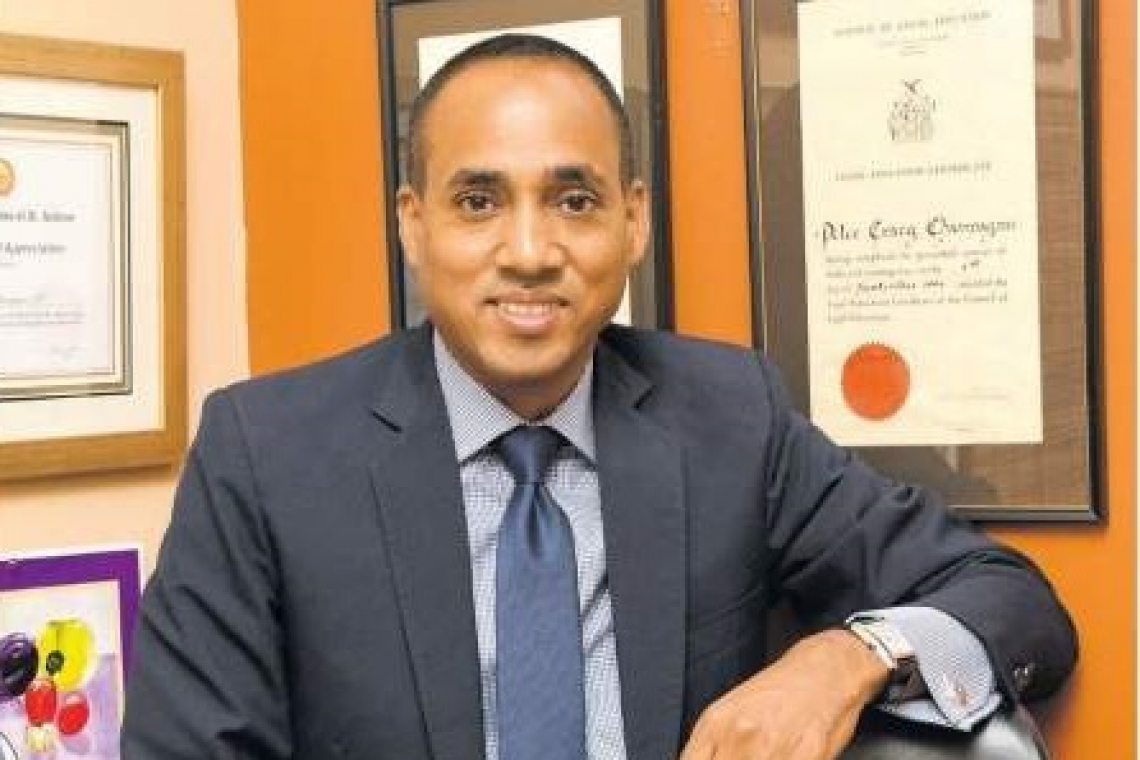Peter Champagnie. Photo courtesy Buzz Caribbean.
KINGSTON, Jamaica--Prominent attorney-at-law Peter Champagnie is adding to the discourse on the appointment of senators, calling for changes to the Constitution that would essentially cancel existing appointments when a new prime minister or Opposition leader takes office.
“What would be most appropriate in the circumstances would be an amendment to the Constitution, where an incoming new leader would have a free hand to nominate persons to the Senate, such as the present situation where you have a slate of senators appointed by the former Opposition leader. A new Opposition leader [has – Ed.] come in and he doesn’t have a free hand to select his senators. I think that’s the better view, and I think the independence of the Senate would be safeguarded better,” Champagnie said on Monday in an interview with the Jamaica Observer.
“Best practices dictate that members of boards would normally resign on the installation of any new chairman. So, too, should it be for existing Senate members on the installation of a new leader of Opposition. For it to be otherwise feeds into the notion that there are one set of rules which favour politicians and another set of rules in respect of other citizens who partake in civic duties. This perception doesn’t augur well for our political system, which saw less than half of the registered electorate voting in the last general election,” he added.
The Queen’s Counsel’s recommendation comes in the wake of news, which emerged last Friday, that former Manchester Central Member of Parliament Peter Bunting could not be sworn in as a senator because there was no writ authorising the move.
Bunting was recommended by new Opposition Leader Mark Golding after an earlier announcement by former People’s National Party (PNP) treasurer Norman Horne that he would forgo his Senate appointment.
Horne said his decision was based on principle and would allow a new Opposition leader to choose his or her senator, having been recommended to the position by then outgoing leader Dr. Peter Phillips.
However, on Friday, President of the Senate Tom Tavares-Finson told the Observer that the writ bearing the name of Horne remained in the Parliament and meant that there was no vacancy, as he did not officially resign from the post.
When contacted on Monday, he told the Observer that he will be making a statement on the matter “in due time”.
Horne’s failure to officially resign has sparked renewed calls for constitutional changes, with former Prime Minister Bruce Golding batting for a review of the provisions regarding the appointment of senators.
He suggested a return to the pre-Independence arrangement, which allowed for appointments to the then Legislative Council to be revoked by the same process by which they were made.
“It is of immense significance that, prior to Independence, the 1959 Constitution expressly provided that the appointment of a member of the Legislative Council could be terminated on the advice of the person who had so nominated him. That provision was deliberately excluded from the 1962 Independence Constitution,” Golding said in a column published in Monday’s edition of the Daily Observer.
But Champagnie does not agree and has argued that a return to the pre-Independence arrangement would threaten the independence of the Senate.
“This has given us much to think about in terms of the present situation with the Senate, which is very topical now because of a certain event. Whereas the point is appreciated that [with] the [1959 Constitution] ... appointments could be made and withdrawn at any time, I do believe, with the greatest of respect, that such a situation would do violence to the independence of the Senate in the strictest sense,” said Champagnie.
“The best demonstration of the independence of the Senate was in 1983 when Edward Seaga was once again re-elected unopposed, essentially because the PNP did not participate in the general election, and he actually appointed a number of senators who acted in an independent fashion, wherein the Opposition’s voice was not compromised to the extent that one would have expected that it would have been.
“So my recommendation is for an amendment, where once there is a new leader, the existing senators, if they are, they resign en bloc to facilitate the choices or wishes of the new leader, and it would avert this kind of situation that we now face,” he added.
He said the argument often put forward that the Senate does not operate as an entirely independent body because of how appointments are made, is moot.
“In the strictest sense of how the Westminster system operates, … even if they’re [recommended] by the prime minister or leader of the Opposition, there is expected to be some degree of independence. That can only go well for the healthy state of our democracy,” said Champagnie. ~ Jamaica Observer ~







